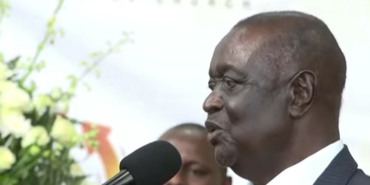Kenya Bans Celebrity Endorsements in Gambling Ads to Curb Betting Culture

In a decisive move to curb the glamorization of gambling and protect vulnerable groups from excessive betting, the Betting Control and Licensing Board (BCLB) of Kenya has implemented sweeping new restrictions on gambling advertisements.
The directive, issued on May 29, 2025, prohibits the use of celebrities, influencers, and content creators in promotional campaigns, marking one of the most significant shifts in Kenya's gambling policies in recent years. The new regulations come amid growing concerns over the rise of gambling culture in Kenya, fueled in part by the accessibility of online betting platforms and aggressive marketing strategies. By banning endorsements from well-known public figures, the BCLB aims to reduce the allure of gambling, which is often portrayed as an easy route to wealth and success.
The directive explicitly states that gambling advertisements must not present betting as glamorous, nor should they suggest it as a viable source of income. The BCLB's action follows a 30-day suspension of gambling advertisements, during which the government conducted a review of existing regulations. The temporary halt in advertising is aimed at restructuring the regulatory framework to align with concerns about public welfare.
In addition to prohibiting celebrity endorsements, the new regulations impose strict controls on where and how gambling advertisements can be displayed. Ads will no longer be permitted near schools, places of worship, playgrounds, shopping malls, or other locations frequented by children. The Board has also introduced a requirement that all gambling ads carry a responsible gambling message, including a warning that gambling is addictive.
Further, all advertisements must feature a visible statement affirming that the operator is licensed and regulated by the BCLB. To enforce compliance, media outlets and gambling operators are required to submit their advertisements for review and approval before they are published or aired. Once approved, ads must also be forwarded to the Kenya Film Classification Board (KFCB) for classification.
The directive also includes restrictions on the frequency and format of advertisements. Outdoor gambling ads will be limited to electronic billboards, with each operator allowed to display a maximum of two ads per hour. The use of wall branding, building signage, bus wraps, and street pole advertisements has been completely banned.
Road shows as a form of gambling promotion have also been prohibited. In print media, operators may advertise only twice per week within the sports section, further curbing the visibility of gambling-related content. Social media platforms, a key avenue for digital betting promotions, will also be expected to enforce stricter age verification measures to prevent minors from accessing gambling-related advertisements. Operators will no longer be allowed to use former winners as a form of promotion, as such endorsements can create unrealistic expectations about the likelihood of winning.
While the BCLB argues that the measures are necessary to safeguard consumers, the regulations could have far-reaching implications for celebrities and content creators who have previously benefited from lucrative endorsement deals with gambling companies. Many influencers have leveraged betting partnerships as a major source of income, and the ban on gambling endorsements is expected to reshape the advertising landscape.
Industry stakeholders have expressed mixed reactions to the new rules. Some gambling firms contend that the restrictions could hamper their marketing efforts and limit engagement with their target audiences. Others acknowledge the need for greater oversight, given the rapid expansion of the gambling sector and its influence on young consumers.
The Kenyan government has long grappled with the challenges posed by the proliferation of gambling, particularly as the industry continues to grow online. With internet access expanding and smartphones becoming increasingly prevalent, gambling has become more accessible than ever before. This accessibility, combined with aggressive advertising campaigns, has contributed to a surge in betting activity, particularly among Kenya's youth.
BCLB Chairperson Dr. Jane Makau emphasises that operators failing to comply with the new regulations will face serious penalties, including suspension or revocation of licenses. Regular audits will be conducted in collaboration with other government agencies to track advertising practices and ensure adherence to the new guidelines.
The broader goal of the BCLB's directive is to foster a more responsible gambling culture while mitigating the risks associated with excessive betting. By restricting the visibility of gambling promotions, the government aims to shift perceptions of betting from a glamorous and aspirational activity to one that is acknowledged as inherently risky and potentially addictive. Looking ahead, the Board has indicated that additional regulations may be introduced as it continues to monitor the gambling industry.














Add new comment